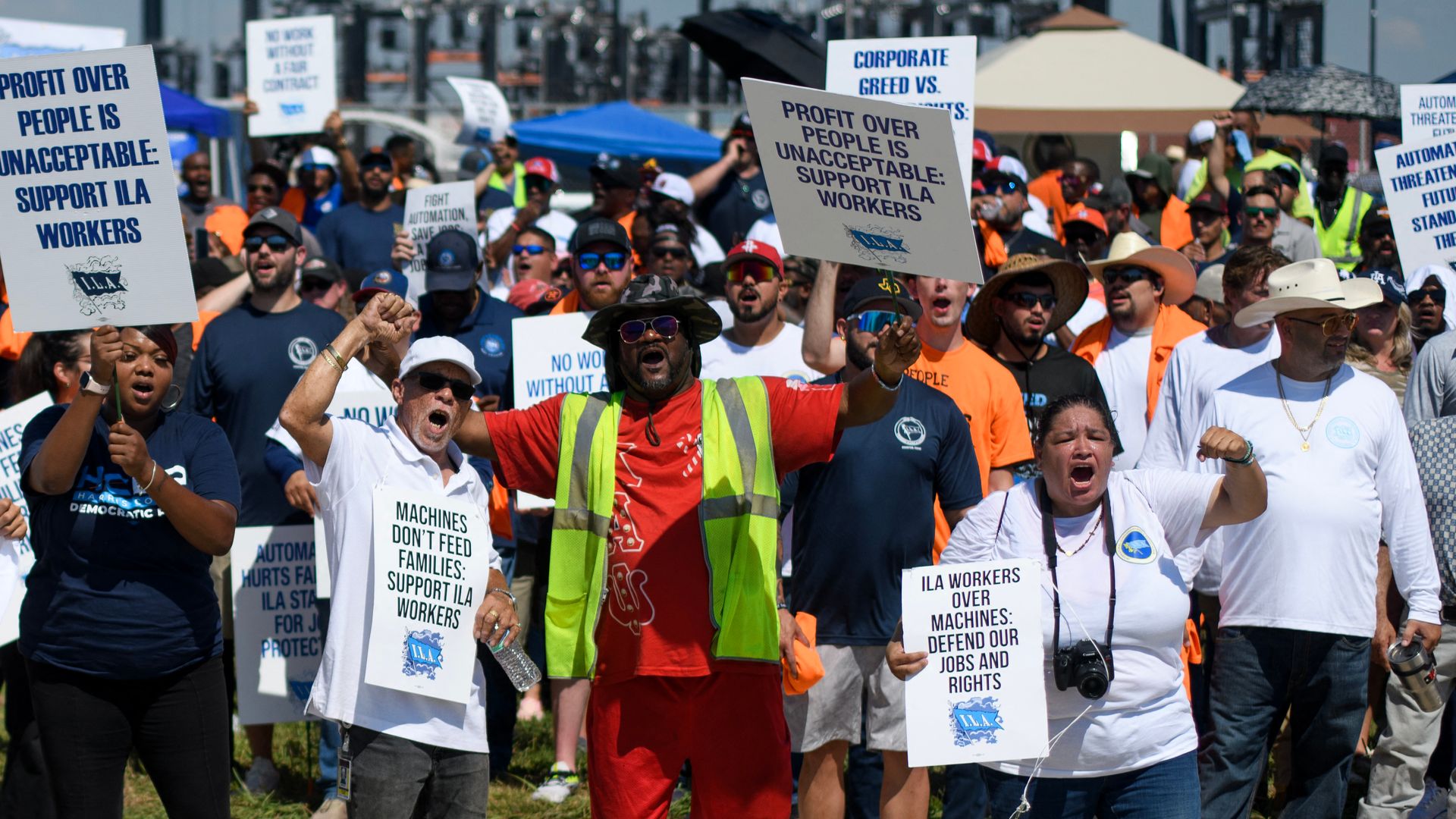
The east and gulf coast port strike continues, as longshoremen demand a massive pay raise and protection from automation. Workers in New Jersey stayed on the picket line overnight. The unions have them scheduled on shifts to make sure the picket lines are manned.
Union leaders don’t sound like they’re about to accept anything less than what they demand.
Boise Butler, President, International Longshoremen’s Association Local 1291: “We’re going to do this for as long as it needs to be done. OK? This is not something that you start and you stop. We’re not weak. We’re not weak. What we control, as far as the economy is concerned? OK? It’s unbelievable. OK? We may be 60,000 members from Maine to Texas, but what we control in the economy is billions and billions and billions of dollars every day. Every day. OK?”
Harold Daggett, the International Longshoremen boss, wants a 77% pay increase over six years for his workers. That would raise the base rate to $69 per hour from the current $39. Under pressure from the Biden Administration, the port employers offered 50% raises.
Daggett says the Longshoremen helped the companies make record profits while they worked under dangerous conditions during the Covid pandemic, now they want to be repaid.
Daggett: These companies are making billions of dollars, they should take us along. We brought them to where they are. Now they want to get rid of us? That’s not fair, not fair at all.
If the base pay goes to $69 an hour, that would be a yearly salary of about $140,000 per year. Longshoremen can already make that much, and even more, but it requires significant overtime.
Daggett: ’ll cripple you. I will cripple you and you have no idea what that means.
In addition to the pay raise, the union wants protections from automation, as seen here at the Port of Los Angeles.
Daggett: They destroyed LA, they put a fully automated terminal out there, Maersk line. 800 longshoremen lost their jobs. If it was up to them they would like to see everybody would lose their jobs.
President Biden could require the workers to return to the docks by invoking the Taft-Hartley Act. That starts an 80-day cooling off period during which company and workers are supposed to resolve their differences. But Daggett says if that happens, his workers will purposefully work slowly, less than a third of their normal loading and unloading pace.
I’m Ray Bogan for STraight Arrow News, for more unbiased reporting, download the SAN app and turn on notifications.











